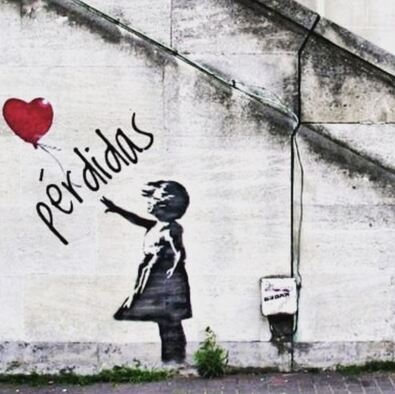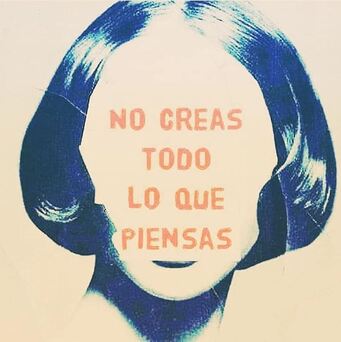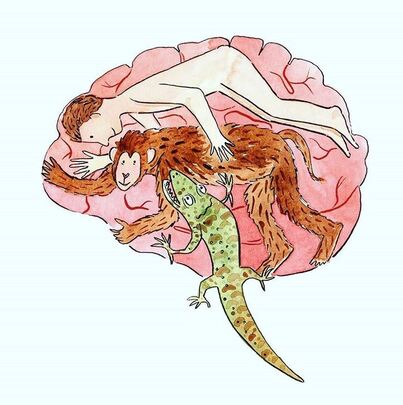|
🏵️The human brain is always seeking to find meaning from the information of our environment. Once it has constructed a belief, it rationalizes it with explanations after the event. The brain then becomes invested in the beliefs and reinforces them by looking for supporting evidence while blinding itself to anything contrary.
🧠Irrational beliefs, in particular, are those about us that we have heard and internalized in our childhood, or that have been self-generated through difficult and/or traumatic experiences. These limiting beliefs constrain us in some way and are constantly brought into play and appear in our minds through automatic thoughts. Without realizing it, they are part of our day-to-day. How much attention do we give them? How much do we listen to and believe them? We get trapped in mental loops where we selectively pay attention to everything in our environment that reinforces that limiting thought-belief. We dismiss alternative options and positive evidence making the loop more intense. ✳️Learning to accept these thoughts as a product of our mind while paying attention to our external reality with curiosity (e.g by practicing mindfulness) could be helpful. ✳️Noticing our body sensations can also help to differentiate our thoughts (internal) from our body & environment (external) to put them in perspective. ✳️One way to start breaking mental loops is to detect those negative vicious cycles and accept them without fighting. ✳️Another way is to know that they are just thoughts, and cannot hurt us, and redirect our attention to the present moment by tuning into our personal values. 🔅Self-compassion and talking gently to ourselves can be a positive change if you practice it regularly. Try it and tell me how it goes. 🏵️Irrational beliefs Albert Ellis chose the term irrational as a euphemism for unhelpful, illogical and inconsistent with our social reality. The four types of Irrational Beliefs ✳️Demands: These are the primary Irrational belief. They often feature phrases such as must, absolute shoulds, have to, need and ought. Example: I would love to succeed and therefore I have to! ✳️Awfulising: awful is defined as anything that is evaluated as being worse than 100% bad. Example: If I don't succeed in my presentation is will be awful! ✳️Low Frustration Tolerance (LFT): Otherwise known as I-can't-stand-it., LFT beliefs feature an acknowledgement of a struggle and an assertion that the struggle is truly unbearable or cannot be stood. Example: If people are rude to me I cannot stand it! ✳️Conditional Self (other, life) Acceptance: Otherwise known as self-downing and generalization, this is where we define our self based on one aspect. Example: If I fail at something important to me then I am a failure Irrational beliefs list by Albert Ellis: "It is a dire necessity for an adult human being to be loved or approved by virtually every significant other person in his community" "One should be thoroughly competent, adequate, and achieving in all possible respects if one is to consider oneself worthwhile" "Certain people are bad, wicked, or villainous and that they should be severely blamed and punished for their villainy" "It is awful and catastrophic when things are not the way one would very much like them to be" "Human unhappiness is externally caused and that people have little or no ability to control their sorrows and disturbances" "If something is or may be dangerous or fearsome one should be terribly concerned about it and should keep dwelling on the possibility of its occurring" "It is easier to avoid than to face certain life difficulties and self-responsibilities" "One should be dependent on others and needs someone stronger than oneself on whom to rely" "One’s past history is an all-important determiner of one’s present behavior and that because something once strongly affected one’s life, it should indefinitely have a similar effect" "One should become quite upset over other people’s problems and disturbances" "There is invariably a right, precise, and perfect solution to human problems and that It is catastrophic if this perfect solution is not found" "You can give people (including yourself) a global rating as a human and that their general worth depends upon the goodness of their performances" Check the Instagram post. Let me know if you can identify any irrational beliefs in yourself, in comments below.
0 Comments
🏵️'Meaning reconstruction' & 'meaning-making' are the central processes in GRIEF
When unanticipated or incongruous events occur, a person needs to redefine the self & relearn ways to engage with the world considering the loss experienced. Usually, the person does not return to a pre-loss level of functioning but instead learns how to develop a meaningful life through adaptation The experience of grief is unique for each person. however, research has shown some commonalities in normal grief placed in 4 general categories: 🔹Feelings sadness, anger, blame, helplessness, shock, pining, emancipation, relief, numbness. 🔹Cognitions disbelief, confusion, preoccupation, sense of presence, hallucinations- visual & auditory. 🔹Physical sensations hollowness in the stomach, tightness in the chest & throat, oversensitivity to noise, sense of depersonalization, breathlessness, weakness in muscles, lack of energy, dry mouth. 🔹Behaviours sleep & eating disturbances, distracted & absentminded behaviour, social withdrawal, dreams of the loss, avoiding reminders of the loss, searching & calling out, sighing, restless hyperactivity, crying, visiting places or carrying objects that remind of the loss, treasuring objects that belonged to the deceased. ⚠️Please note that not everyone will experience all of the symptoms. 🏵️The mourning process Many authors have listed up to 12 stages of mourning. The Kübler-Ross model is the most popular which outlines 5 grief stages. 🔹denial 🔹anger 🔹depression 🔹bargaining 🔹acceptance 🤔 The problem with the stages is that research shows that grievers do not progress through these stages in a stepwise fashion. However, people believe this is how they "should" grieve and it becomes self-critical, exacerbating some of the difficult symptoms experienced during the mourning process. ✳️There is more than only one healthy way to grieve. 🔆The tasks of the mourning process Psychologist J. William Worden proposed a different model. He believed there are 4 main tasks a griever needs to do for “the process of mourning to be completed” & “equilibrium to be re-established”. This task model puts the person in an active role instead of a passive one, giving the griever some sense of control in their own process. . 🔅Tasks: 🔹To accept the reality of the loss 🔹To process the pain of the grief 🔹To adjust to a world without the deceased/loss. 🔹To find a way to remember the deceased/loss while embarking on the rest of one’s journey through life. ⚠️ People may need to revisit certain tasks over time because grief is not linear Check my post here! 🔎Experts estimate that the mind thinks between 60,000 – 80,000 thoughts a day. Some of these thoughts are unhelpful & self-critical.
Have you found yourself caught up on those thoughts not being able to stop thinking about them? 🔆This is called FUSION When we are in a state of fusion with our thoughts, it seems as if: 🔹thoughts are reality & are happening in the present moment 🔹thoughts are the absolute truth 🔹thoughts are important & we have to take them seriously 🔹thoughts are orders & we have to obey them without questioning 🔹thoughts are wise & we have to follow their advice 🔹thoughts are threats & frightening ✳️DEFUSION Defusion involves distancing, stepping back & observing thoughts & feelings for what they are (streams of words, passing sensations), not what they say they are (dangers or facts). In a state of defusion with our thoughts, it seems as if: 🔹thoughts are merely sounds, words, stories, bits of language 🔹thoughts may or may not be the truth 🔹thoughts may or may not be important 🔹thoughts are not orders, we don't have to obey them 🔹thoughts may or may not be wise 🔹thoughts are never threats, even the most painful ones does not represent a threat to us Defusion techniques Think about a self-critical thought that often comes to your mind. Now try to say: ✳️" I am having the thought that ..." ✳️" The story I am telling myself is ..." ✳️" I am having the feeling of ..." ✳️Put a funny melody onto the thought (e.g. happy birthday song) ✳️Put funny cartoon voices onto the thought (e.g think of Shrek saying the thought) ✳️See the thought as a slogan of an advertisement 🔆The goal is to learn how to build a different relationship with our thoughts, giving them space and seeing them for what they are. Check my Instagram post for more. 🧠Did you know that there are different evolutionary layers on the human brain?
⬆️The brain is built from the bottom up. It develops level by level within every child on the mother's womb. 👨🔬Neuroscientist Paul MacLean formulated the 'Triune Brain' model, which is based on the division of the human brain into 3 distinct regions: 🦎Reptilian brain/ brain-stem basic life-sustaining systems: arousal, breathing, satiation, wake, hunger, sleep, chemical balance, heart rate, temperature, pain, balance 💛Limbic brain "emotional / mammalian brain", responsible for emotions, perception, categorization, monitor & interpretation of danger, pleasure, visceral sensations, record memories of behaviors. 🤔Rational brain- Neocortex planning & anticipation, emphatic understanding, sense of time & context, imagination, reflection, use of language, understanding abstract & symbolic ideas, inhibitions of inappropriate actions |
AuthorHi there! Archives
January 2022
Categories |




 RSS Feed
RSS Feed
